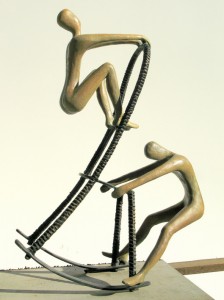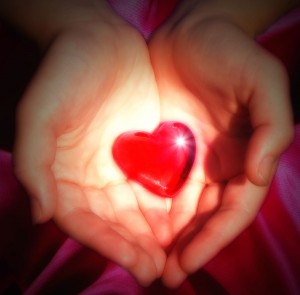 I begrudgingly watched The Bachelor last night and shuddered at how quickly girls sized each other up and put each other down. Hoping they'd feel more cool, more amazing, and more chosen in the process. Ignorant still to the truth that we can only receive what we're willing to give. Their immaturity served up as entertainment.
I begrudgingly watched The Bachelor last night and shuddered at how quickly girls sized each other up and put each other down. Hoping they'd feel more cool, more amazing, and more chosen in the process. Ignorant still to the truth that we can only receive what we're willing to give. Their immaturity served up as entertainment.
Immaturity is sometimes about age-- it simply takes some life experiences before we can have wisdom.
But the difference between a woman and girl isn't in a birth date, but in a state of mind. I've seen young women love those around them with health and joy, and I've seen older women so practiced over the years in their victim narrative that every event is seen through the filter of perceived rejection. Maturity can go either way.
Undoubtedly, we all behave like girls at time, in different areas of our lives.
- Maybe it's in your finances-- waiting for someone else to "fix" them, living in denial about the gap between your spending and earning, or mistakenly thinking that buying things improves your worth.
- Or maybe it's in your romance-- falling for the myth that you need to be chosen by someone to prove your value, repeating patterns you haven't examined, or holding grievances against someone for not living up to your expectations.
- Or maybe it's your health-- how you're sabotaging what you say is important to you, living with both too much restriction in one area only to not discipline yourself in another, or holding stress/fear around that which we cannot control.
- Or maybe it's in your spirituality & personal growth-- in your tendency to throw out the metaphoric baby with the bath water, the judgment and cynicism you hold around belief and practices that aren't already yours, or the busy-ness you're not stepping out of to hear your own voice.
But for the purpose of this blog, I want to talk about how I see our immaturity showing up in our friendships.
We are called GIRLfriends, But We Must Still Show up as Women.
We act immature in our friendships when we feel insecure about ourselves. Which we tend to do more often than most of us care to admit. Here are some scenarios I repeatedly see:
Fear of Rejection: We go to a ConnectingCircle-- then feel hurt that others didn't follow up with us afterward and conclude either that they are selfish/arrogant/non-committal people OR that we are unlikable/loners/un-interesting. Notice in both cases we are holding attack thoughts toward others or toward ourselves. We feel rejected.
Girls want others to initiate, choosing to live with the fear of rejection instead of the possibility of connection. Women know that they have every responsibility to initiate also, choosing to do what they can and not hold the results as an affront to their ultimate worth.
Fear of Not Feeling Good About Ourselves: With all this language around toxic relationships, we seem to be giving each other more and more permission to cut people out of our lives that don't make us feel good. The problem with this often is that it's not always because the other person is toxic that we don't feel strong. Sometimes that voice of insecurity can reveal powerful information that indeed we have personal work we want to do. We can feel bad toward someone because they have something we want, something we're jealous about, or something that we think makes us look less than to not have it (i.e. more money, new relationship, a baby, kids she's proud of, career success).
A Girl gets off the phone feeling yucky and mistakenly assumes the other person is the problem she feels bad about herself. A Woman asks herself how she can cheer for her friends excitement, and use that to help reveal to herself what it says about what she ultimately wants.
Fear of Judgment. On a similar note is our immediate tendency to judge others. Fast and harsh. It comes out in our decision to RSVP for a particular event-- convinced we are good judges of deciding whether we'll like the other people based on a photo! It comes out in meeting each other when we find ourselves judging their behaviors, dress, stories, etc. We have such a hard time just letting people be themselves... and by extension giving ourselves that same gift. Our ego's feel momentarily better about who we are if we can tell ourselves we're better than her. But that's immaturity at it's height of ignorance.
A Girl judges others so that she feels better. A Woman accepts others so that she feels better, knowing she can be powerful without devaluing another.
Growing Up.
It's time to grow up.
It's time to show up facing each other as women. Women who deserve our utmost respect. Women who have inherent value whether you can immediately see it or not. Women who know that they will eventually feel about themselves whatever they feel about others. Women who know that they don't have to be better than thou to be their best. Women who feel hopeful when they see others succeed. Women who trust that as they love, so will they be loved.
Unlike age that just happens to you whether you want it or not, maturity comes when invited. It comes when you hold the possibility that there might be a better way to approach life. It comes when you admit enough humility to recognize that just because you think something doesn't make it fact. It comes when you know your own worth enough to not need to see everything as a reaction to you. It comes when you say that small prayer: "Mature me. Grow me."
We are not competitors. We are allies. (Even if any of you eventually becomes a contestant on a show where competing to win the affections of one eligible bachelor... even then you need not devalue.)
This 2012, I hope we all hold the courage to grow up. Facing each other as humans. With dignity. The world needs more Women.









